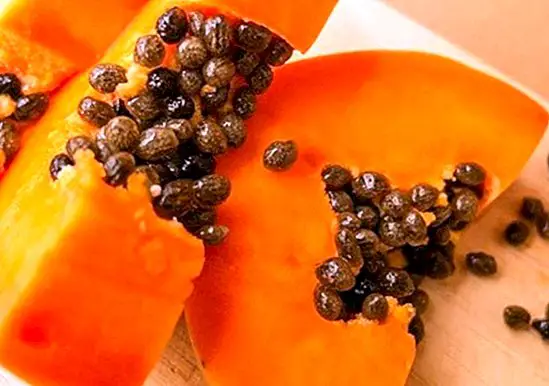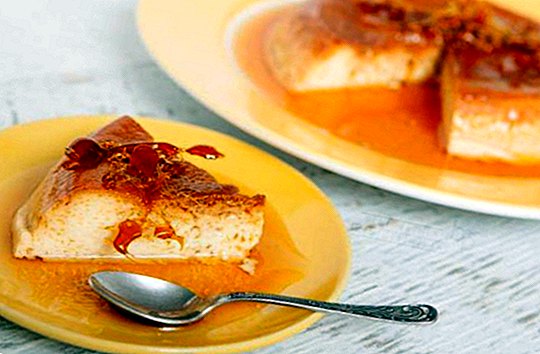Matcha green tea: what it is, benefits and properties
Japan stands out for being a country where the consumption of Green Tea It is as high as for example in Spain what is coffee consumption. In addition, it surprises not only for the great tradition that it holds around this mythical and popular drink, but for the great diversity of tea varieties that we can find in this beautiful eastern country.
Among those varieties best known and consumed we can find Bancha tea (common tea), known as Gyokuro tea (jade spray), Genmaicha tea (variety of tea with roasted rice grain), Kabusecha tea (covered tea) , the Hojicha tea (deliciously toasted tea), the Kukicha tea (stems tea), the Tamaryokucha tea (the popular little green tea ball), the Sencha tea (toasted tea) and the Matcha tea (also popularly known as Matcha green tea).
It is a variety of tea that It is characterized by being a green tea milled, so that unlike other types of green tea, it is presented and sold as a powder, with that characteristic green color that distinguishes it so much.
It is one of the teas traditionally used in the Japanese Tea Ceremony, and its presentation as ground tea is very common its use not only for the making of the own tea drink itself, but also its use in the kitchen, whether in the development of classic Japanese desserts, ice cream and biscuits.

How is the Matcha green tea elaboration
The preparation of this type of tea begins weeks before its harvest, when the tea plant is covered in order to hide it from the sun, creating a darker green tone in its leaves, which also delays both its development and growth .
This habit of cultivation is what gives the possibility that Matcha green tea acquires not only that color so characteristic, but its sweet taste because it allows its content to increase in amino acids.
After the harvest, the leaves are dried on a flat surface, the veins and the stem are removed and it is milled several times in order to achieve the finest texture possible.
The benefits of Matcha green tea
Very rich in antioxidants
The flavonoids They are vegetal pigments that we find in many plants, and that contribute a good diversity of benefits for our health. Matcha green tea is very rich in flavonoids, which means that it becomes a tremendously antioxidant drink (1), especially due to the presence of the well-known tea catechins.
These catechins have a great capacity to neutralize the negative action of free radicals, helping positively when it comes to reducing the effects they exert on our body.
It also contributes vitamin C, an essential essential nutrient at the time of prevent cancer (2), strengthen our defenses and help in the process of natural cleansing of our body, for example by preventing fluid retention or eliminating toxins.

High tannin content
Besides being very rich in flavonoids, Matcha tea has a high concentration of tannins, which They act as mild laxative, which means that it becomes an ideal tea variety when it comes to improve intestinal transit, in a totally natural and simple way.
Help to lose weight
If we take into account that the tannins present in green tea Matcha acts primarily as a detoxifier, scrubber and gentle laxative, there is no doubt that It becomes an ideal tea to lose weight and lose weight.
Among its recognized qualities in this regard, we must emphasize above all its ability to increase the metabolism, and therefore increase calorie burn by our body.
Reduces cholesterol and blood sugar
Precisely because of its high antioxidant content It is an ideal drink to reduce high levels of fats in the blood, helping especially when it comes to lowering the values of high cholesterol and of triglycerides, in addition to body fat, especially if combined with the practice of physical exercise (3).
On the other hand, it has been found that Regular consumption of Matcha tea helps lower blood sugar levels, being in turn suitable for people with diabetes by not raising insulin levels.
It brings vitality
Recent studies have found that consuming Matcha green tea on a regular basis is useful to bring vitality to our body (4), acting naturally when giving us energy. In fact, it has been shown that Matcha tea is capable of improving the physical resistance of those who habitually consume it.
How to prepare Matcha tea
The truth is prepare a Matcha green tea It is very simple.But for this, in addition to the tea and water itself, you need a fine sieve and a Japanese brush used regularly for the preparation of this traditional drink (in case you do not have it will be worth with a small spoon).

Ingredients that you need
- 2 tablespoons Matcha green tea
- 1 cup of water
Steps to make Matcha green tea
First heat a little water in a saucepan, and when it reaches a temperature of about 80 ºC pour into the cup where you are going to serve the tea in order to heat it. Then discard this water and dry the cup very carefully.
Sift with a colander the amount of Matcha green tea that you are going to use to make the tea (this time 2 tablespoons). Finely chop to remove any kind of impurity that may exist, letting it fall directly on the cup where you are going to take it.
Meanwhile, heat the equivalent of 1 cup of water, but without exceeding 80 º C. Then add hot water over the green tea and use the brush or spoon to beat the green tea until it is integrated with the hot water, and form foam. Ready! Let's enjoy it.
Main contraindications of Matcha tea
We are faced with a variety of tea considered safe, in the same way it happens with green tea. However, we must bear in mind that there are a number of contraindications that can make Matcha tea not so recommended.
As with other varieties of tea, Matcha tea contains caffeine, so that if consumed in excess it can produce some adverse symptoms such as irritability, palpitations, dizziness and headache.
For this reason, it is advisable to ask the doctor before taking Matcha tea if you suffer from the heart, from the kidneys or if you have a stomach ulcer.
Bibliography:
- Xu P, Ying L, Hong G, Wang Y. The effects of the aqueous extract and residue of Matcha on the antioxidant status and lipid and glucose levels in mice fed a high-fat diet. Food Funct. 2016 Jan; 7 (1): 294-300. doi: 10.1039 / c5fo00828j.
- van der Reest J, Gottlieb E. Anti-cancer effects of vitamin C revisited. Cell Res. 2016 Mar; 26 (3): 269-70. doi: 10.1038 / cr.2016.7.
- Willems MET, Şahin MA, Cook MD. Matcha Green Tea Drinks Enhance Fat Oxidation During Brisk Walking in Females. Int J Sport Nutr Exerc Metab. 2018 Sep 1; 28 (5): 536-541. doi: 10.1123 / ijsnem.2017-0237.
- Dietz C, Dekker M. Effect of Green Tea Phytochemicals on Mood and Cognition. Curr Pharm Des. 2017; 23 (19): 2876-2905. doi: 10.2174 / 1381612823666170105151800.



